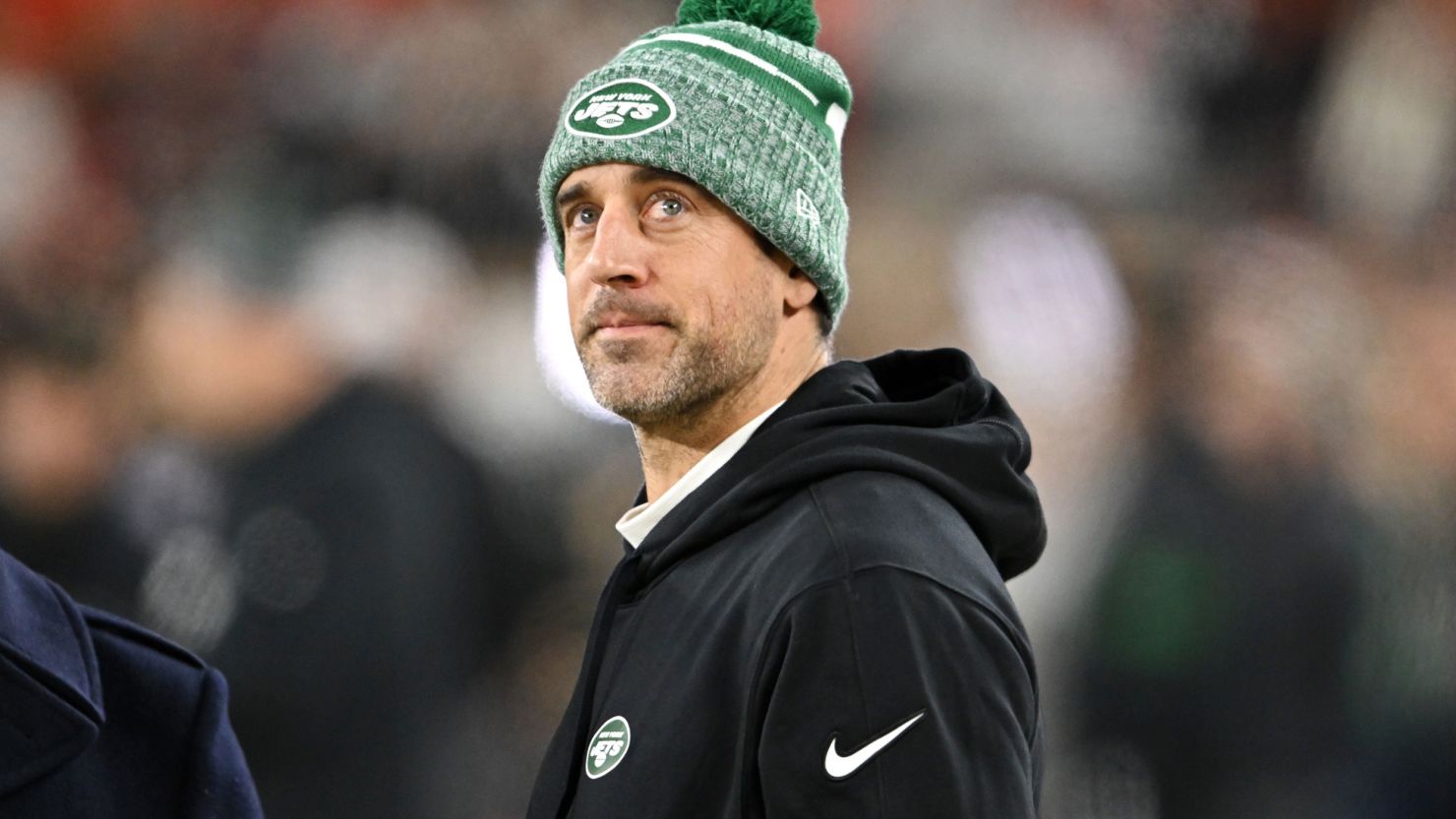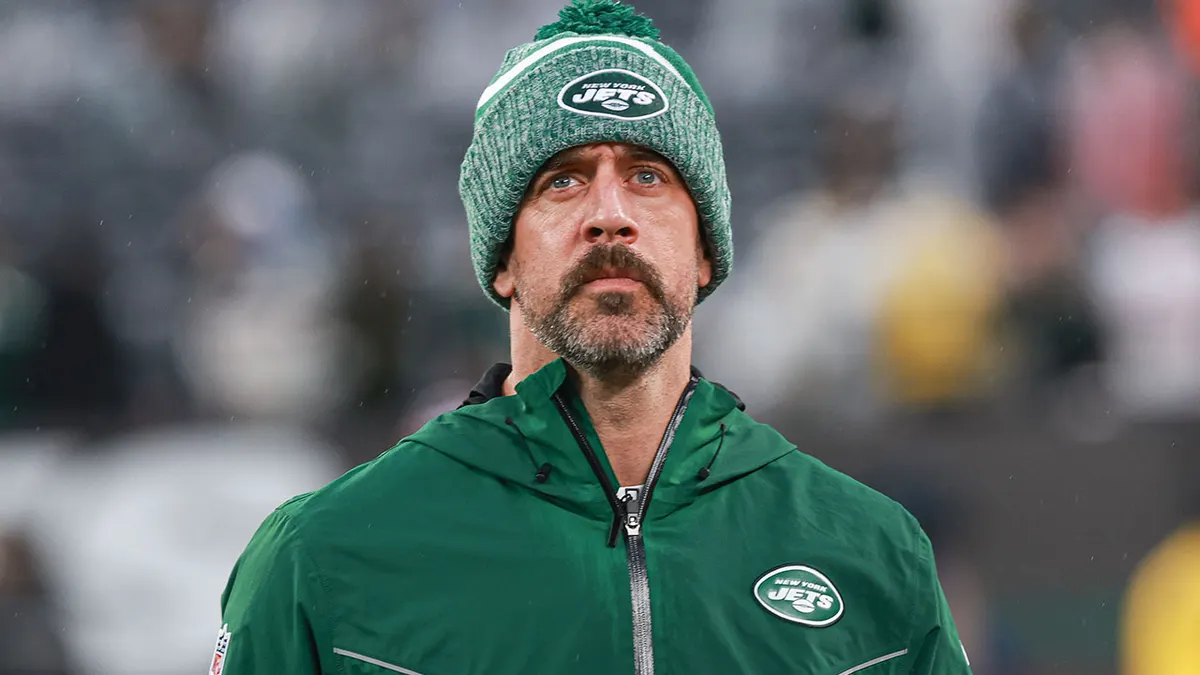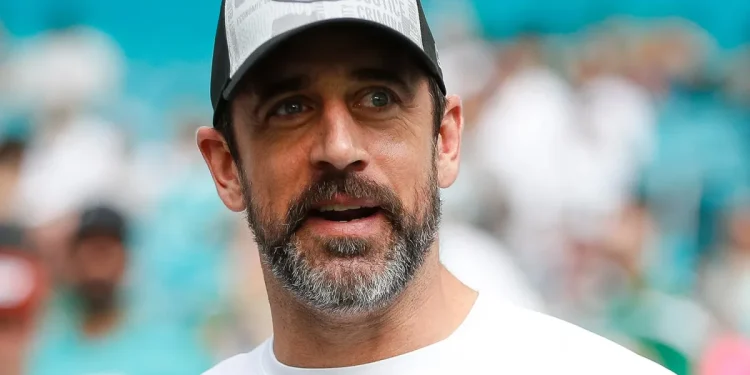In the landscape of the NFL, leadership is just as pivotal as physical prowess, and Aaron Rodgers has long been a figure of admiration and controversy in these debates. His recent move from the Green Bay Packers to the New York Jets in 2023 marked the end of an era and the beginning of a new chapter, not just for Rodgers, but for the teams involved.

Rodgers’ tenure with the Packers was nothing short of legendary, spanning 18 seasons that included a Super Bowl victory and 10 Pro Bowl selections. However, it was his off-field role as a leader that has come under scrutiny following his departure.
The Packers’ decision to part ways with Rodgers, propelling Jordan Love to the starting quarterback position, was influenced by what the front office perceived as an untenable situation, hinting at deeper issues within team dynamics.
Amari Rodgers’ Criticism
Amari Rodgers, a former Packers wide receiver, recently expressed dissatisfaction with Aaron Rodgers’ leadership. His revelations have sparked discussions about the veteran quarterback’s approach to mentoring and team management.
Amari’s critique surfaced on social media, where he lamented the preferential treatment reportedly given to rookie wide receiver Malachi Corley by Aaron. This treatment included an invitation to stay at Aaron’s guest house, facilitating a smoother rookie transition — a gesture Amari felt he missed out on during his time in Green Bay.
Amari’s post on X (formerly Twitter) was candid and brief: “Promise this helps him play better as a Rookie. If only I had this type of love coming into GB, but to each his own!” Although the post was quickly deleted, it highlighted a sense of neglect that some players feel in the competitive environment fostered by NFL teams.
Just your daily reminder…
Garrett Wilson will finish top 5 this year if Aaron Rodgers plays a full 17 games pic.twitter.com/Fh9Uu5yIqI
— Snoog’s Dynasty Society (@FFSnoog) May 10, 2024
Analyzing Aaron Rodgers’ Leadership Style
The incident raises questions about the differing leadership styles and how they are perceived within team settings. Aaron Rodgers, known for his strategic acumen on the field, may employ a different approach off the field, focusing perhaps on fostering talent selectively, which can lead to perceptions of favoritism and discord among team members.

As Rodgers embarks on his inaugural season with the Jets, all eyes will be on how he transitions into his new role and whether his leadership style will evolve. The Jets have strategically surrounded him with familiar faces from his Packers days in hopes of recreating the on-field chemistry that marked his previous successes.
What Lies Ahead for Aaron Rodgers and the New York Jets
As the NFL season progresses, the effectiveness of Aaron Rodgers’ leadership will be a topic of continuous observation. The Jets‘ performance, under his guidance, will serve as a barometer for his ability to adapt and lead a new team in a new environment. Whether he can replicate his success with the Packers and mend his reputation as a leader who supports all his teammates equally remains to be seen.

In the high-stakes world of professional sports, leadership is as dynamic and scrutinized as the games played on the field. For Aaron Rodgers, this season is not just another set of games; it is an opportunity to redefine his legacy — both as a quarterback and as a leader.










